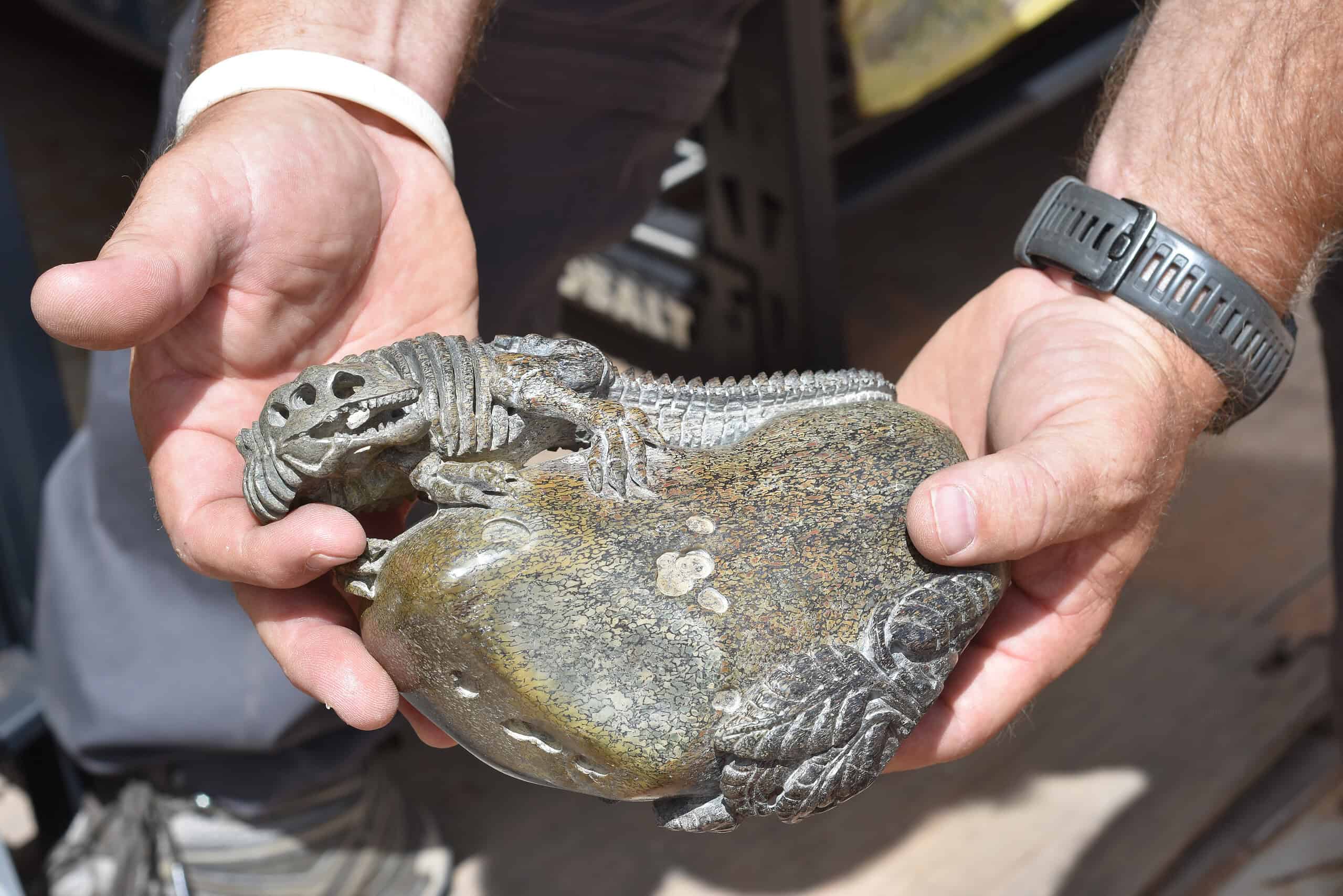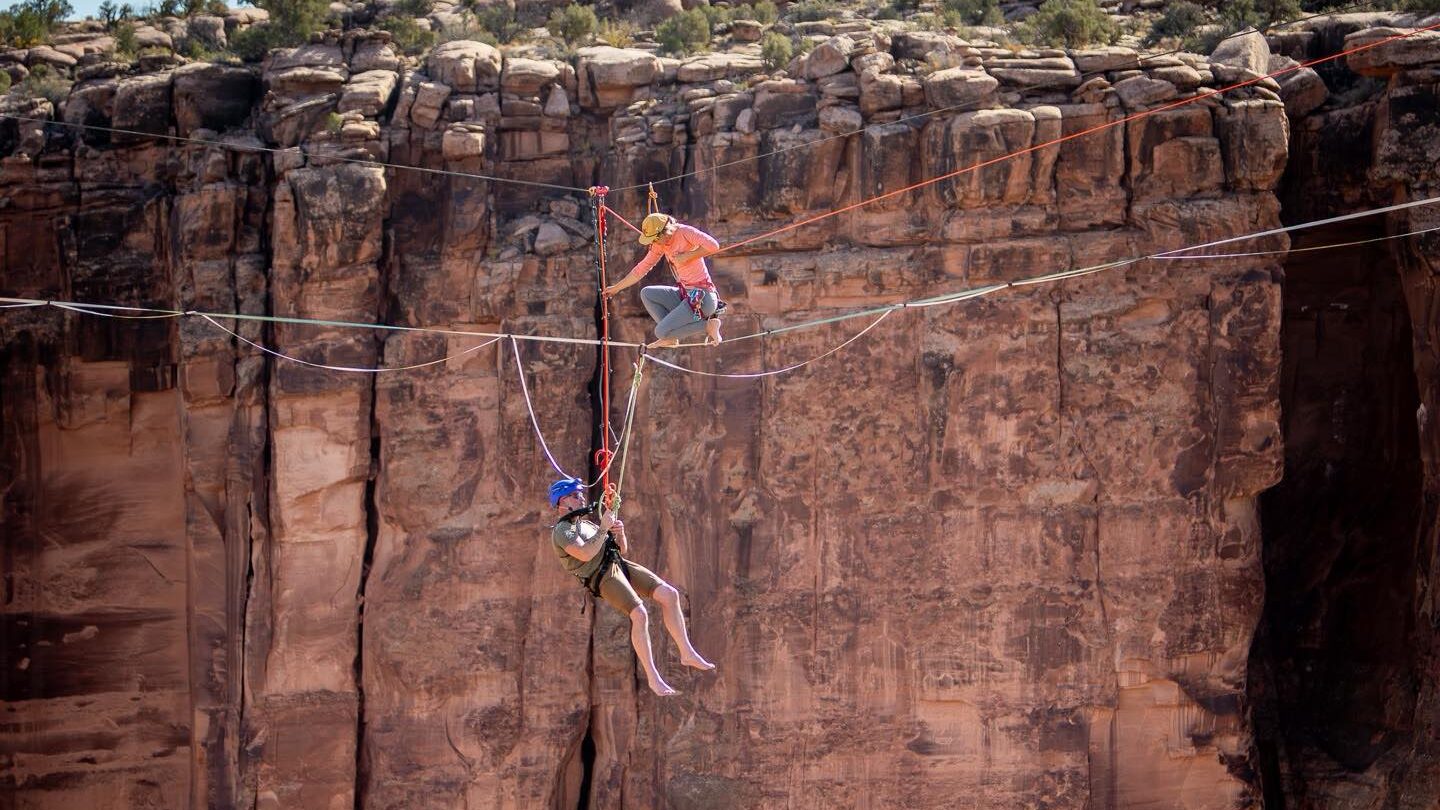Some information may be outdated.

Two Moab residents are among four defendants named in a federal indictment involving the illegal collection and sale of dinosaur bones and other fossils removed from federal lands in the Grand County area. Since 2018, Vint and Donna Wade of Moab, Steven Willing of California, and Jordan Willing of Oregon have allegedly conducted over $1 million in sales of these items, which are protected under the 2009 Paleontological Resource Preservation Act. A total of 13 charges includes counts of money laundering, smuggling, and conspiracy against the United States, in addition to violation of PRPA.
Vint and Donna Wade are co-owners of a business called Wade’s Wood and Rocks in Moab. Steven Willing and his son Jordan Willing are executives at an Oregon-based business called JMW Sales. According to the indictment, the Wades purchased paleontological resources from unnamed individuals who collected them from federal lands. The Wades kept some of the material; much of it was sold to JMW Sales and exported to China. Experts analyzed seized fossils using a technique called x-ray fluorescence (XRF) to locate the area from which the bones were taken, and determined they’d been removed from the Morrison geological formation.
“Elemental fingerprints can be used to compare seized fossils to sites where they originated (and
were subsequently removed),” the indictment explains. “Paleontologists can compare seized dinosaur bones, compare them to control samples of known public and private quarries and determine from where the bones had been removed from the earth.”
The Morrison formation is known to be rich in fossils; about 95% of the Morrison formation in Utah is on public lands (including state, federal and tribal), according to the indictment.
Documents obtained by investigators through search warrants suggest that the defendants knew the materials were collected illegally, and took measures to obscure their origins. For example, in 2019, Donna Wade emailed an invoice to JMW Sales for a shipment of jasper and wood; the actual contents of the shipment were paleontological resources, according to the indictment, which goes on to note,
“The shipment was held up in China due to high radiation levels.”

A document stating the U.S. position on the detention of the defendants includes examples of evidence against the four, such as photos of a typed and signed purchase and sale agreement, dated June 15, 2021, for 28,000 pounds of dinosaur bone (along with 14,000 pounds of turquoise). Some of the material had been crafted into jewelry, knives, beads, carvings, and cabochons (polished stones that are not faceted). The Willings agreed to buy the inventory from the Wades for $1,437,000.
Investigators say the operation involved about 150,000 pounds of paleontological resources in total. In a press conference on October 19, U.S. Attorney Trina A. Higgins explained that scientists can infer a lot of information from a fossil’s location, the soil type in which it’s buried, neighboring fossils, its position, and other context clues. That information is lost when a fossil is removed without documentation.
“As you can imagine, when dinosaur bones and other paleontological resources are removed from their primary location—and especially when they’re further processed—they lose almost all scientific value,” Higgins said. “Although dinosaur bones and all paleontological resources have a value on some markets, the true loss of removing these items from public lands cannot be monetarily measured. It is invaluable.”
A press release from the Utah District of the U.S. Attorney’s Office says that the defendants caused over $3 million in damages, taking into account the commercial value of the fossils, their scientific value, and the cost of restoration and repair.
Bureau of Land Management officials said that if members of the public come across dinosaur bones on federal lands, the best thing to do is to document them—take a photograph, and, if possible, a GPS point—and let local land managers know about it.
BLM officers are assisting in the investigation; other partners include the Grand and San Juan county sheriff’s offices and the Salt Lake City FBI Office.
The defendants were scheduled for their first court appearance on October 19. Possible penalties for violation of PRPA include fines and up to five years in prison. If the defendants are found guilty, federal agencies would likely seize all illegal paleontological resources in the defendants’ possession, as well as assets associated with the illegal sale of paleontological resources, such as money and vehicles. The indictment is only an allegation; the defendants are presumed innocent until proven guilty in a court of law.
Appreciate the coverage? Help keep local news alive.
Chip in to support the Moab Sun News.





